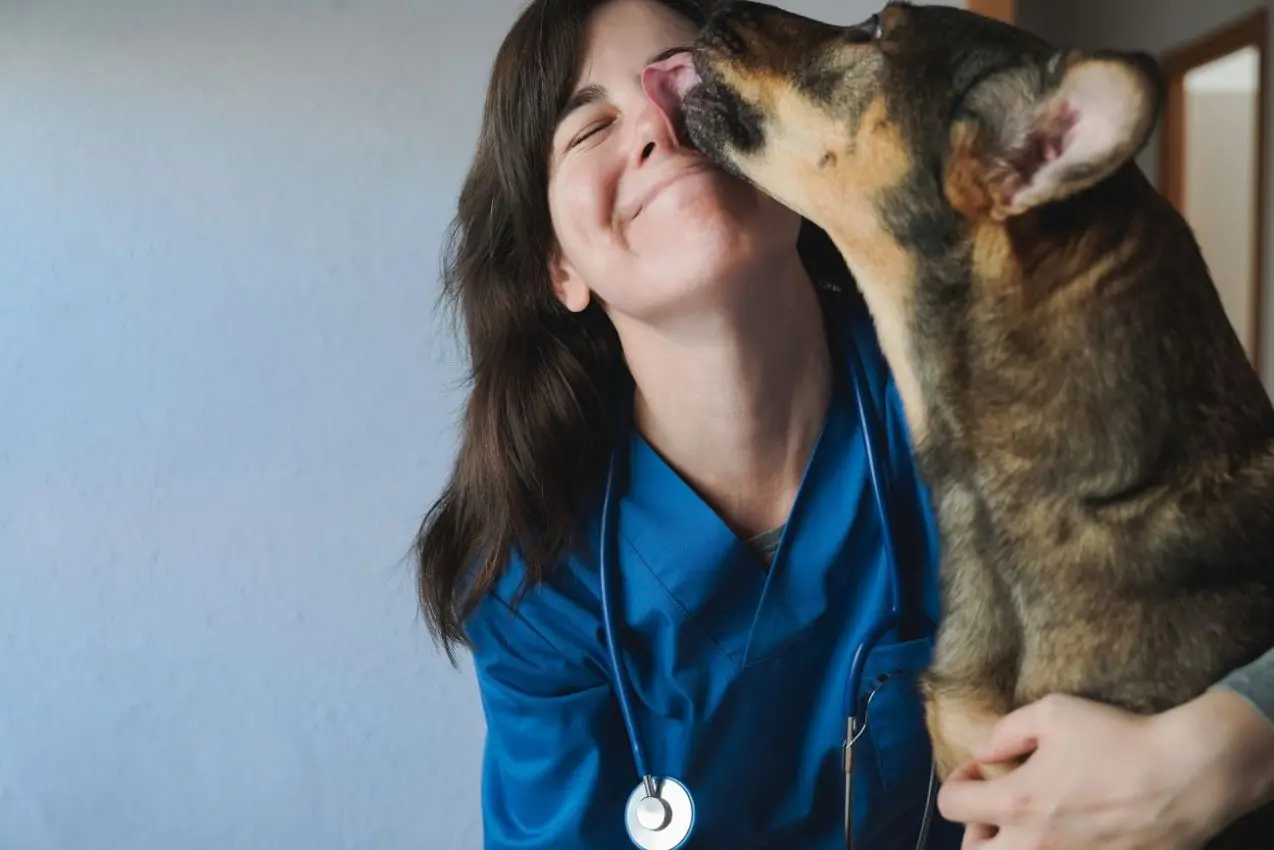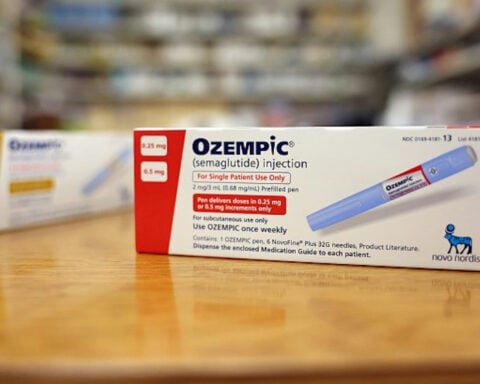As man's best friend, dogs enrich our lives in countless ways - easing anxiety, reducing loneliness, spurring physical activity, and even potentially lowering cardiovascular disease. However, these beloved pets can also transmit illness-causing germs to humans through bites, scratches, face licks, or accidental ingestion of feces. Thankfully, simple precautions can greatly mitigate sickness risks for people snuggling up to their furry companions.
Veterinarians caution that dogs harbor diverse bacteria, parasites, and fungi transmissible to humans - including salmonella, E. coli, campylobacter, giardia, cryptosporidium, hookworm, and roundworm. These can spark gastrointestinal troubles like diarrhea or abdominal pain. Dogs may also spread ringworm, inducing itchy, ring-shaped rashes in people. Precisely tallying annual canine-to-human infections proves difficult, as tracing back to specific pets presents challenges, said Jason Stull, an Ohio State University College of Veterinary Medicine professor. But young puppies under six months old tend to present the biggest threat, with still-developing immune systems.
While rare, dogs can even transmit rabies or capnocytophaga through bites - the former a nervous system-attacking virus causing one to three reported human cases yearly, the latter a bacteria provoking illnesses like sepsis, which infects approximately 150 to 250 Americans annually. Pregnant women, people over 65 or under 5, and those with compromised immunity face heightened vulnerability. "Keeping your dog healthy helps keep you and your family healthy," emphasized Casey Barton Behravesh, a Centers for Disease Control and Prevention veterinarian. This resonates especially for households with high-risk members.
Vaccinations, veterinary care, parasite medications, and prompt diarrhea treatment all help reduce sickness transmission from pets to owners. "Vets can prescribe medications lowering the chance your dog will harbor parasites, ticks and fleas - all transferable to people," said Dennis Horter, a vet and CityVet chief operating officer. Consequently, Rebecca Greenstein - a veterinarian advising Rover - underscored always contacting the vet quickly when canine diarrhea strikes. "Raw meat diets for dogs only accentuate risks of spreading salmonella, E. coli or campylobacter without clear pet health benefits," she added. Multiple studies corroborate the hazards.
After petting or handling dogs, CDC's Barton Behravesh reminds people to wash hands thoroughly. Moreover, avoid face licks entirely, counseled Stull. "It's very easy for infectious organisms in animal saliva to infect humans through scratches or wounds," he warned. Letting dogs lick open cuts or sores proves particularly problematic. Though some dog lovers assume canine mouths stay clean, Stull clarifies: "They're not."
Sickness risks rise alongside dog proximity and handling habits. For Cynthia Smith, allowing her seven-year-old rescue terrier, Mollee, to sleep alongside her every night in Atlanta seems second nature. "We're totally bonded. Mollee gets separation anxiety if she doesn't snuggle with me," attests Smith. Beyond sharing a bed, the two regularly exchange face licks. "I've kissed dogs since I was a little girl and never had an issue," she maintains.
Timothy Chang, meanwhile, cringes at Smith's routine. The Boston accountant refuses to let his Labradoodle puppy Milo lick any skin whatsoever, fearful of germ transmission. "I'd definitely get sick if Milo licked my face or slept in my bed every night," Chang insists. "But I know not everyone is as cautious around their pets." Chang thoroughly scrub his hands after playing fetch with Milo in the backyard. "Puppies explore everything outside - who knows what could end up in their mouths," he reasons.
Reality lies somewhere in the middle, vets say. Reasonable precautions suffice for most people and pets without forgoing snuggles entirely. "It depends on the dog's overall health and your own susceptibility," noted Horter. "Hand washing easily reduces risks for healthy adults and animals." But compromising conditions like pregnancy warrant extra care around pets, Barton Behravesh stresses.
Greenstein acknowledges many owners kiss dogs without issue, but face licks raise concerns because "accidents happen - a dog shakes its head and unintentionally scratches you." She considers sleeping alongside pets generally safe too, unless the animal actively licks faces at night. Germ probabilities also increase if owners allow mouth-on-mouth kisses after dogs drink from puddles, pour out medication from own mouths into canine mouths, or sloppily scoop dog waste lacking protective equipment.
Vigilance levels should additionally reflect environments. "Expect higher exposure in public places like dog parks versus controlled home settings," said Stull. Owners often incorrectly presume all pets at dog parks stay current on vaccines and preventatives. Park trips boost odds of contracting hookworm or roundworm from stool residue left in soil by frequent canine visitors. Stull reminds owners to move children avoiding putting hands, belongings or toys in mouths until after thoroughly washing up.
Ultimately for Smith, the joys of snuggling her rescue terrier Mollee far outweigh negligible infection risks. “Dogs give people unconditional love. I’d rather focus on the positives of having them around,” she asserts. Chang agrees benefits outweigh costs, though remains warier. “I prefer striking the right balance to keep me and my puppy healthy together.” Following reasonable safeguards, most Americans appear able to savor canine companionship without prolific germ hazards looming. By heeding vet tips, the path lies open for largely risk-free snuggling, kissing and cavorting with our beloved four-legged friends.

 United Airlines CEO calls pullback in domestic seats a durable trend
United Airlines CEO calls pullback in domestic seats a durable trend
 Discover Financial fourth-quarter profit jumps on lower loan loss provisions
Discover Financial fourth-quarter profit jumps on lower loan loss provisions
 Volkswagen says 6% margin target for brand realistic in medium term, analyst says
Volkswagen says 6% margin target for brand realistic in medium term, analyst says
 Bain matches CC Capital's offer for Australia's Insignia Financial at $1.92 billion
Bain matches CC Capital's offer for Australia's Insignia Financial at $1.92 billion
 White House summarizes Trump orders this week suspending entry at border
White House summarizes Trump orders this week suspending entry at border
 Alaska Air beats Q4 profit estimates, sees smaller Q1 loss on robust travel demand
Alaska Air beats Q4 profit estimates, sees smaller Q1 loss on robust travel demand
 Patrick Mahomes on whether NFL officials favor the Chiefs: 'The referees are doing their best'
Patrick Mahomes on whether NFL officials favor the Chiefs: 'The referees are doing their best'
 risk of dogs lick your face
risk of dogs lick your face







